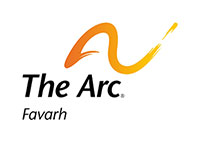A Home Of Her Own: Non-Profit Housing Plan Could Help Those With Disabilities Live Independently
Lauren Traceski is interested in the two housing projects Favarh ARC of the Farmington Valley is hoping to build. Favarh works with peolpe who have intellectual and developmental disabilities and Traceski is one of its clients.
Twenty-five-year-old Lauren Traceski wants a place of her own, and independence from her parents in Canton.
Born with a genetic disorder that left her blind in one eye, partially deaf and in need of help from her parents, Traceski has worked toward that independence by learning how to cook and do laundry. She also works as a clerk at a craft store. Though she would like to take the next step — moving into her own apartment — affordable housing for those with intellectual and physical disabilities is tough to find in the area.
Traceski is hoping a proposed apartment complex in town will help her achieve her dream of living like other young adults her age.
“I want to get out of my parents’ house and be on my own,” Traceski said. “I would like to see myself be more independent.”
Favarh ARC of the Farmington Valley has been working since the beginning of the year to secure money for two housing projects through a new state program. The intent is to create a new form of housing for people with intellectual and developmental disabilities that is cheaper than group homes and that brings them together with people who are not disabled.
Stephen Morris, Favarh’s executive director, said this arrangement has the potential to break new ground in Connecticut by helping people with disabilities become integrated into a community.
“Group homes helped deinstitutionalize people with these disabilities but they never lived up to their promise of community integration,” Morris said. “With this, people are living in their own neighborhood. Apartments are the perfect setting for real integration.”
Funding would come through the state’s Intellectual Disabilities and Autism Spectrum Housing, or IDASH, program, which was created last year and has $20 million available. Favarh has received tentative approval for $13.5 million for two projects with a total of 78 apartments. One would be in Canton and the other in Bloomfield.
Favarh runs employment and residential services for people with intellectual and developmental disabilities.
A requirement of the IDASH program is that housing projects it funds be integrated communities, with people who have disabilities living side-by-side with residents who are not disabled.
Morris said that for both projects, 25 percent of the apartments would be leased to Favarh clients who would be monitored by staff. The remaining units would be rented to people making less than the median household income for the area.
Morris said the model he is hoping to put in place with the apartments is less costly than group homes, which the state subsidizes.
“Group homes are expensive and not a sustainable system to keep growing,” Morris said. Farvarh runs eight group homes in the Farmington Valley with a total of 32 residents.
The IDASH program is a collaboration between the state departments of housing and developmental services. Dan Arsenault, a spokesman for the department of housing, said $6.9 million has been designated for the Bloomfield project and $6.6 million for the one in Canton.
A third application has been submitted by the Chrysalis Center in Hartford, which has requested $6.4 million for a project in Hartford with 34 apartments. There, too, tenants would be a mix of people with intellectual disabilities and people who are not disabled but still make less than the median income. Arsenault said that proposal is under review.
A requirement of the IDASH program is that agencies serving people with intellectual and developmental disabilities partner with a developer. Favarh is working with Regan Development of New York, which has developed similar projects in other states. For the proposed Hartford project, the Chysalis Center would be the developer and the service provider would be HARC Inc., said Maryellen Shuckerow, a spokeswoman for the Chrysalis Center.
The housing department approved both of Farvarh’s projects in the spring and summer. But a roadblock is that the State Bond Commission must approve both grants. The bond commission was set to vote on the Canton project when it met in December, but Arsenault said the housing department withdrew the application so it could it could review the plan further. The hope is to have the project on the agenda for the bond commission’s next meeting, he said.
Morris said he hopes to break ground on at least one of the projects by spring.
“I am relatively optimistic that once we have a bond commission meeting these projects will move forward,” said Steve DiLella, the housing department’s director of the individual and family support unit.
That hope is shared by Traceski and her family.
Lauren’s father, Fran Traceski admitted he was skeptical that his daughter could live on her own but wants to give her the opportunity to try in the new housing. He said he shares his daughter’s dream.
“My goals for Lauren are probably not that different from what all of us want for our children, to be self-actualized and independent,” he said.
